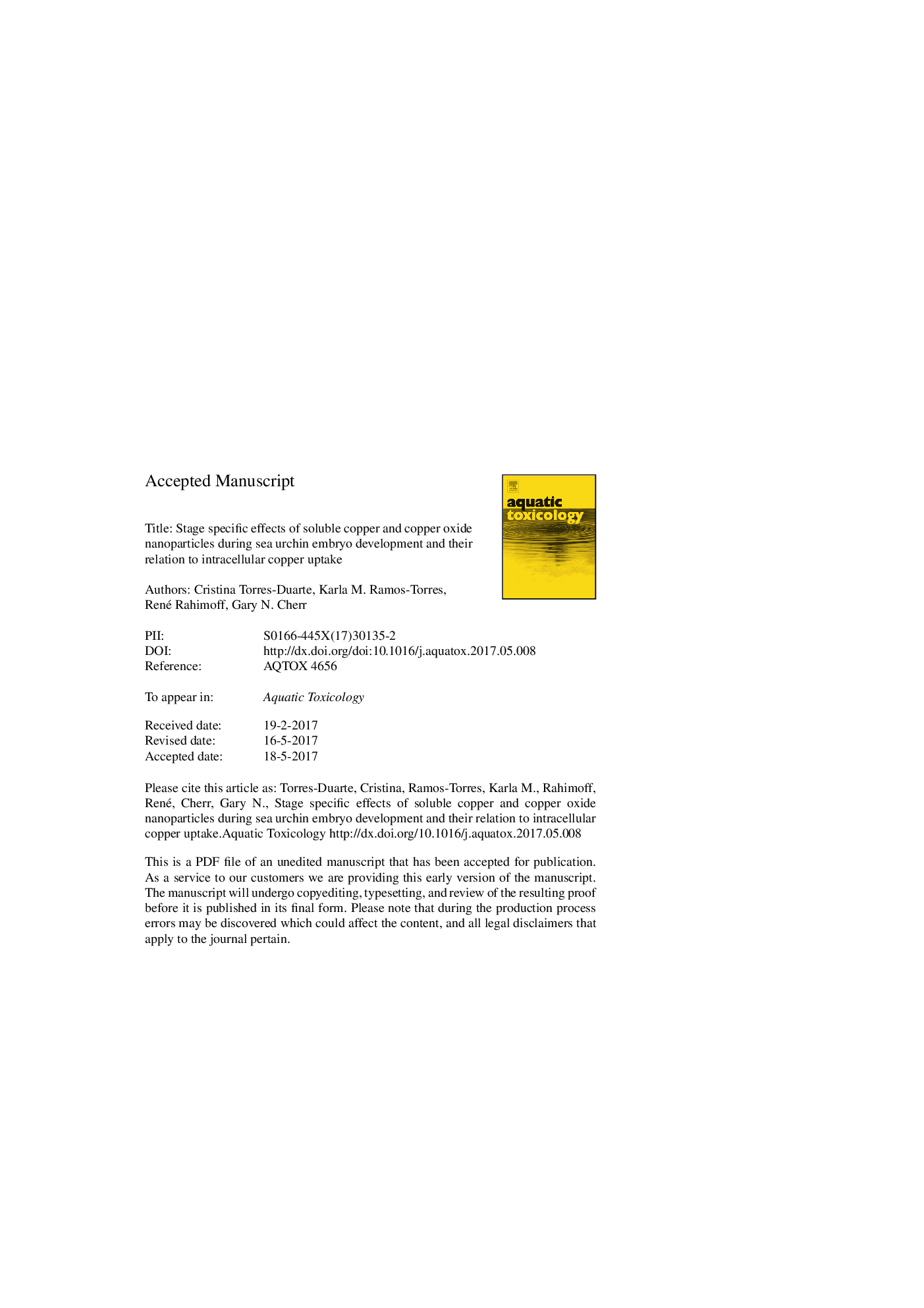| Article ID | Journal | Published Year | Pages | File Type |
|---|---|---|---|---|
| 5764181 | Aquatic Toxicology | 2017 | 27 Pages |
Abstract
The effects of exposure to either soluble copper (copper sulfate) or copper oxide nanoparticles (nano-CuO) during specific early developmental stages of sea urchin embryos were analyzed. Soluble copper caused significant malformations in embryos (skeletal malformations, delayed development or gut malformations) when present at any given stage, while cleavage stage was the most sensitive to nano-CuO exposure causing skeletal malformations and decreased total antioxidant capacity. The stage specificity was linked to higher endocytic activity during the first hours of development that leads to higher accumulation of copper in specific cells critical for development. Results indicate that nano-CuO results in higher accumulation of copper inside of embryos and this intracellular copper is more persistent as compared to soluble copper. The possible implications later in development are discussed.
Related Topics
Life Sciences
Agricultural and Biological Sciences
Aquatic Science
Authors
Cristina Torres-Duarte, Karla M. Ramos-Torres, René Rahimoff, Gary N. Cherr,
